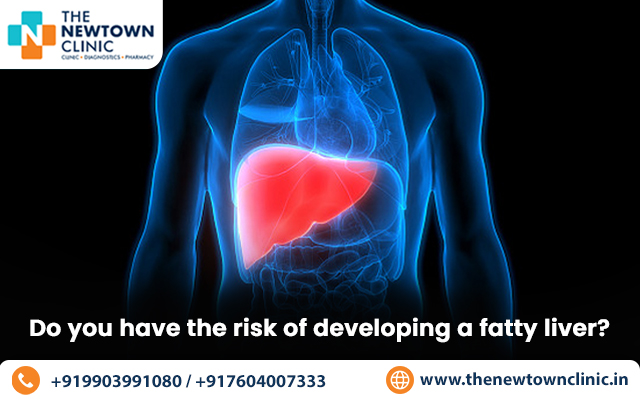Are you experiencing symptoms indicative of fatty liver disease? Get to know more about it from the best gastroenterologist in Newtown.
Fatty liver disease (FLD) is characterized by the accumulation of excess fat in liver cells. It can lead to various complications, if left untreated. Learn about the condition of fatty liver, its symptoms, causes and treatments from the best gastroenterologist in Newtown.
What is Fatty Liver?
Fatty liver occurs when fat accounts for more than 5% of the liver’s weight. This excessive fat deposition impairs liver function and can be attributed to different factors.
Types of Fatty Liver Disease
There are two primary types of fatty liver disease:
- Alcoholic Fatty Liver Disease: This condition results from excessive alcohol consumption and damages the liver over time, potentially leading to severe complications such as alcoholic hepatitis or cirrhosis.
- Non-Alcoholic Fatty Liver Disease (NAFLD): Unlike alcoholic fatty liver disease, NAFLD isn’t related to alcohol consumption. Instead, it’s commonly associated with obesity, diabetes and metabolic syndrome.
Symptoms of Fatty Liver Disease
According to the doctors of the best gastroenterology hospital in Newtown, both alcoholic and non-alcoholic fatty liver diseases are often asymptomatic, meaning they don’t typically present noticeable symptoms. However, some individuals may experience mild discomfort or fatigue in the upper right abdomen.
Causes and Risk Factors
Several factors can contribute to the development of fatty liver disease, including:
- Obesity
- Insulin resistance (common in type 2 diabetes)
- High blood sugar levels
- Elevated levels of fat in the blood
- Rapid weight loss
- Certain medications
- Genetics
- Poor diet
- Metabolic syndrome
Diagnosing Fatty Liver Disease
Diagnosing fatty liver disease involves a comprehensive evaluation, including a medical history review, physical examination, blood tests, imaging studies and, in some cases, a liver biopsy.
- Medical History: Doctors inquire about family medical history, alcohol consumption, lifestyle habits, existing medical conditions, medications, and recent health changes.
- Physical Examination: Physicians may conduct abdominal examination to assess liver enlargement, although inflammation can exist without noticeable enlargement.
- Blood Tests: Elevated liver enzymes, such as ALT and AST, may indicate liver inflammation, prompting further investigation.
- Imaging Studies: Ultrasound, CT scans, MRI scans and FibroScan are used to identify fat accumulation and assess liver stiffness.
- Liver Biopsy: In severe cases or when the diagnosis is unclear, a liver biopsy may be performed to evaluate liver tissue for fatty infiltration and scarring.
Treatment of Fatty Liver Disease
Treatment primarily focus on lifestyle modifications and managing underlying conditions:
- Management of Underlying Conditions: Effective management of conditions like diabetes, high cholesterol and metabolic syndrome.
- Medications and Supplements: Medications may be prescribed to manage underlying conditions. Certain supplements like vitamin E and omega-3 fatty acids may also be beneficial.
- Regular Monitoring: Regular follow-ups with healthcare providers are essential to monitor liver function and disease progression.
- Lifestyle Modifications: Weight loss, healthy diet, regular exercise and avoiding alcohol is essential.
Fatty liver disease is a significant health concern that can lead to serious complications if not addressed timely. By understanding the risk factors, symptoms and treatments for fatty liver disease, individuals can take proactive steps to maintain liver health. If you suspect you may be at risk or experiencing symptoms, consult the best gastroenterologist in Newtown for proper evaluation and treatment.

